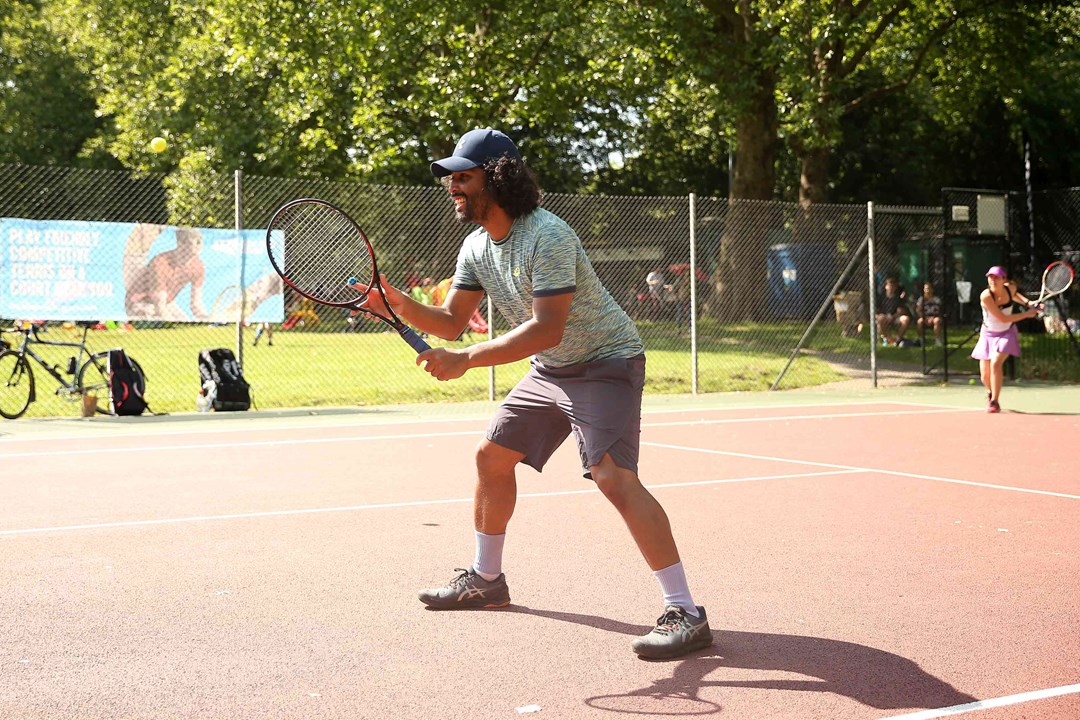
Helping local authorities can effectively operate their park sites - Model Two
• 4 MINUTE READ
Local Authority owns courts booking opportunities and outsources the provision of a coaching programme.
Some local authorities recognise that they do not have the trained workforce to deliver a comprehensive coaching programme, but do have the administrative resources to operate court booking opportunities for members of the public. This model can provide huge benefits to both parties, allowing each to deliver in areas that they are experienced, capable and comfortable.
Local Authorities have the ability to specify a number of court hours that can be used for coaching per week, and set a cost accordingly. This model can be used on a site by site basis, or across a network of park venues. Depending on the opportunity available, Local Authorities may receive applications from a range of interested parties, ranging from sole trader coaches through to larger national Coaching Operators or companies. Local Authorities may deem it possible to have multiple coaching providers operating on different sites across the entire park stock, whilst still providing a consistent court booking offer across all venues.
Model in pracitice: Woking Park
A 5 court venue, utilising gates access, ClubSpark and LTA Rally, situated in a flagship park, currently unlit, but planning to install lights on 4 courts in the near future.
The Local Authorities Community Development Team manage operations in partnership with the Parks Team, to offer a Pay & Play opportunity at £8 per hour and an annual household pass at £39 - allowing 6 hours play per week.
The Local Authority are responsible for any annual maintenance, sinking fund and capital works at the site. Woking Lawn Tennis & Croquet Club (WLTCC) run a coaching programme at the park as a community ‘arm’ that compliments their more traditional offer at the club.
The parks programme currently attracts over 100 player per week, using multiple solutions such as LTA Youth Start. WLTCCare charged an annual rental fee based on a court charge of £2 per court hour, up to a maximum of 30 hours per week. WLTCC must ensure that at least 2 courts are available to the public at all times.
Results
- This model generates enough income for the Local Authority to cover all sinking fund contributions, and make a surplus which is re-invested in to the tennis facilities across the borough.
- All 5 coaching providers are able to operate their own businesses and keep
100% of the income.
Benefits of this model
- The Local Authority has the ability to ensure that there is always adequate court time available for the public to book.
- The Local Authority uses existing administration skills and resources to generate income from court bookings, and also generate guaranteed annual income from a coaching provider.
- Coaching providers are incentivised by increased revenue, to offer coaching opportunities that are attractive and suitable for the public.
Potential drawbacks of this model
- The Local Authority does not have direct contact with coaching customers, so a shared marketing/communication plan may be needed.
- A reduced income from the coaching programme.
- A contract will be required to ensure complete understanding of the responsibilities of both parties - this could include a clause that both the Local Authority and the coaching provider promote each others opportunities.
Top tips
- This model can work well for any size venue, or across any number of venues.
- This gives Local Authorities the ability to specify that some coaching activity must be delivered at specific sites - perhaps providing the opportunity to play in areas of
higher deprivation. - The Local Authority could charge a fee for a set number of hours, or could charge an agreed amount per hour used i.e. £3 per hour.
- The Local Authority can offer incentives to the coaching provider to encourage customers to become season ticket holders.
- Whilst the Local Authority doesn’t have full control over the programme, they can include an agreed schedule of services within the contract between club and coach, for example:
- Coaching for all levels and abilities of player
- Disability / accessible tennis provision
- School holiday time activity
- Forming links with schools or other community groups
- Providing reports on the number of players participating in coaching
- Providing Coaching support at community engagement days / sport festivals.
Useful resources
To access a downloadable PDF version of the model, click the below button:

